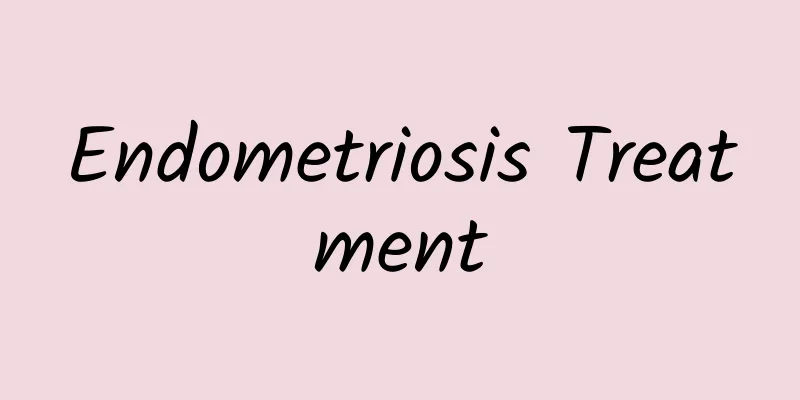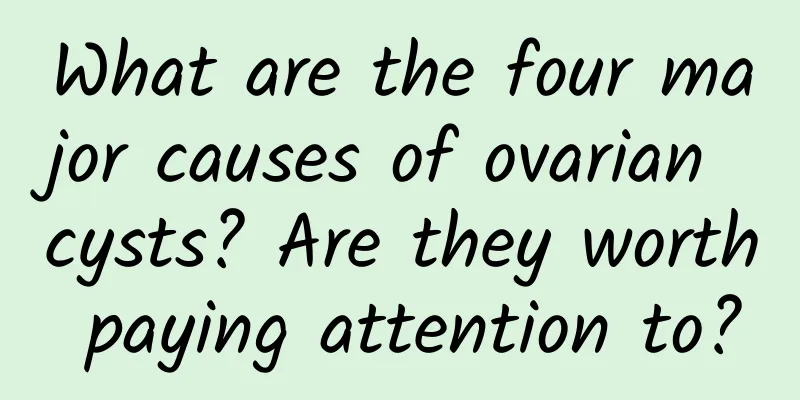Will uterine fibroids cause miscarriage? What should I do if I have uterine fibroids?

|
In recent years, as people's pace of life accelerates, modern women are often busy with work and taking care of the family, always putting their health last, and health problems emerge in an endless stream. Uterine fibroids are a common gynecological tumor in women. Among adult women, the incidence rate exceeds 20%, ranking first among common gynecological diseases. So, can uterine fibroids affect fertility when pregnant? Today, let's follow the authoritative gynecologist to find out. Uterine fibroids are known as the "first gynecological tumor". It is said that according to the different growth sites of fibroids, they can be divided into intramural fibroids, submucosal fibroids, subserosal fibroids, etc. According to experts, most tumor patients have obvious early symptoms and can only be diagnosed during gynecological examinations. Can you get pregnant with uterine fibroids? It needs to be determined based on the specific situation of the patient. Patients with fibroids that are less than 4 cm and grow slowly can usually get pregnant, but there are risks. Uterine fibroids are hormone-dependent tumors that may have a certain impact on childbirth and milk production during pregnancy. Therefore, it is necessary to confirm whether you are pregnant after an examination by a gynecologist. Fibroids are large, usually over 4cm in size, and grow faster than usual. Doctors recommend treatment before pregnancy. Survey data show that among pregnant women, the miscarriage rate caused by uterine fibroids is as high as 25%. Experts point out that this is because fibroids often increase the size of the uterus, uterine curvature and endometrial area; submucosal fibroids themselves grow in the uterus, just like foreign bodies in the uterus stimulating the uterus, promoting its spasmodic contraction and leading to miscarriage. Uterine fibroids can cause miscarriage Even if the patient survives after having difficulty getting pregnant, the spontaneous abortion rate for pregnancy complicated by fibroids is around 20%. Fibroids affect the implantation of the gestational egg and the development of the placenta, leading to placenta previa, placental abruption and placental adhesion. If the fibroids restrict the movement of the fetus in the uterus, the position of the fetus will be abnormal; if the fibroids hinder the connection of the fetus to be exposed first, the fetal membrane will rupture early. The incidence of antepartum hemorrhage is high. 1. If the placenta is too close or directly covers the uterine fibroids, it can easily lead to miscarriage, premature birth, early placental detachment, heavy postpartum bleeding, delayed delivery, low birth weight and other adverse phenomena, seriously affecting the development and health of the fetus. 2. If the uterine fibroids are large, it is more likely to cause malposition of the fetus or premature birth in the mother. 3. Myomas with stems may twist, and pregnant women will have abdominal pain. Pay attention at this time. It is necessary to perform a cesarean section in time to avoid more adverse consequences. At present, the Orlock superconducting ablation system has realized the minimally invasive diagnosis and treatment of diseases such as uterine fibroids, uterine polyps, and endometriosis, meeting the needs of modern women to "remove fibroids without surgery and protect the uterus". The diagnosis and treatment needs make them more humane when facing diseases. Therefore, more and more patients trust and recognize it. At different stages, women's body functions and life structures will change, making them vulnerable to gynecological diseases. Therefore, experts recommend that adult women should do one or two gynecological examinations every year to find problems and achieve "early diagnosis, early examination, and early treatment" is the key. How to prevent uterine fibroids? 1. Avoid artificial abortion Nowadays, more and more women are having abortions, and some even have it twice within a few months. Abortion can also cause uterine fibroids, so couples should actively take contraceptive measures and try to avoid abortion. Keep a positive attitude Patients should maintain a good attitude, regulate their emotions, avoid extreme joy and anger, and a smooth mood is very helpful for the disease. Be mindful of your diet Female friends should eat more foods containing protein and vitamins, adhere to a low-fat diet, eat more lean meat, eggs, green vegetables, fruits, etc. High-fat foods promote the production and release of certain hormones, so the incidence of uterine fibroids in obese women increases significantly. Therefore, cultivating good eating habits has a certain inhibitory effect on uterine fibroids. 4. Regular physical examination Regular gynecological examinations can detect uterine fibroids as soon as possible, which is very helpful for treatment. Women usually have an examination once a year. |
Recommend
How to treat uterine fibroids? What is the most effective way to treat uterine fibroids?
Now the medical treatment technology of various d...
Ten tips to prevent vaginal candidal infection
Vaginitis is a common gynecological disease. 75% ...
Several dangers of bacterial vaginosis
Vaginal candidiasis brings certain troubles and h...
Symptoms and causes of premature ovarian failure
The causes of premature ovarian failure involve m...
Which hospital is best for treating cervical warts?
In today's life, many people suffer from vari...
What is the difference between ovarian cysts and polycystic ovaries?
What is the difference between ovarian cysts and ...
How to check ectopic pregnancy clinically
I believe that everyone has heard of the disease ...
Irregular menstruation may lead to decreased vision
Some women experience eye discomfort during menst...
How long does it take to delay menstruation by taking birth control pills
It is a common phenomenon that menstruation is de...
Irregular menstruation is closely related to bad living habits
Irregular menstruation is a common gynecological ...
Can I take evening primrose capsules during my menstrual period?
Evening primrose capsules have anti-aging and ski...
What supplements should menopausal women take? Eat more of these in your life
Women must pay attention to their own maintenance...
Scientific treatment methods for acute pelvic inflammatory disease
Scientific treatment methods for acute pelvic inf...
Lose weight more efficiently! 4 exercises to lose weight with your bestie
Boring weight loss exercises always make it diffi...
Women should be aware of the early symptoms of ectopic pregnancy
It is very common for women to have ectopic pregn...









